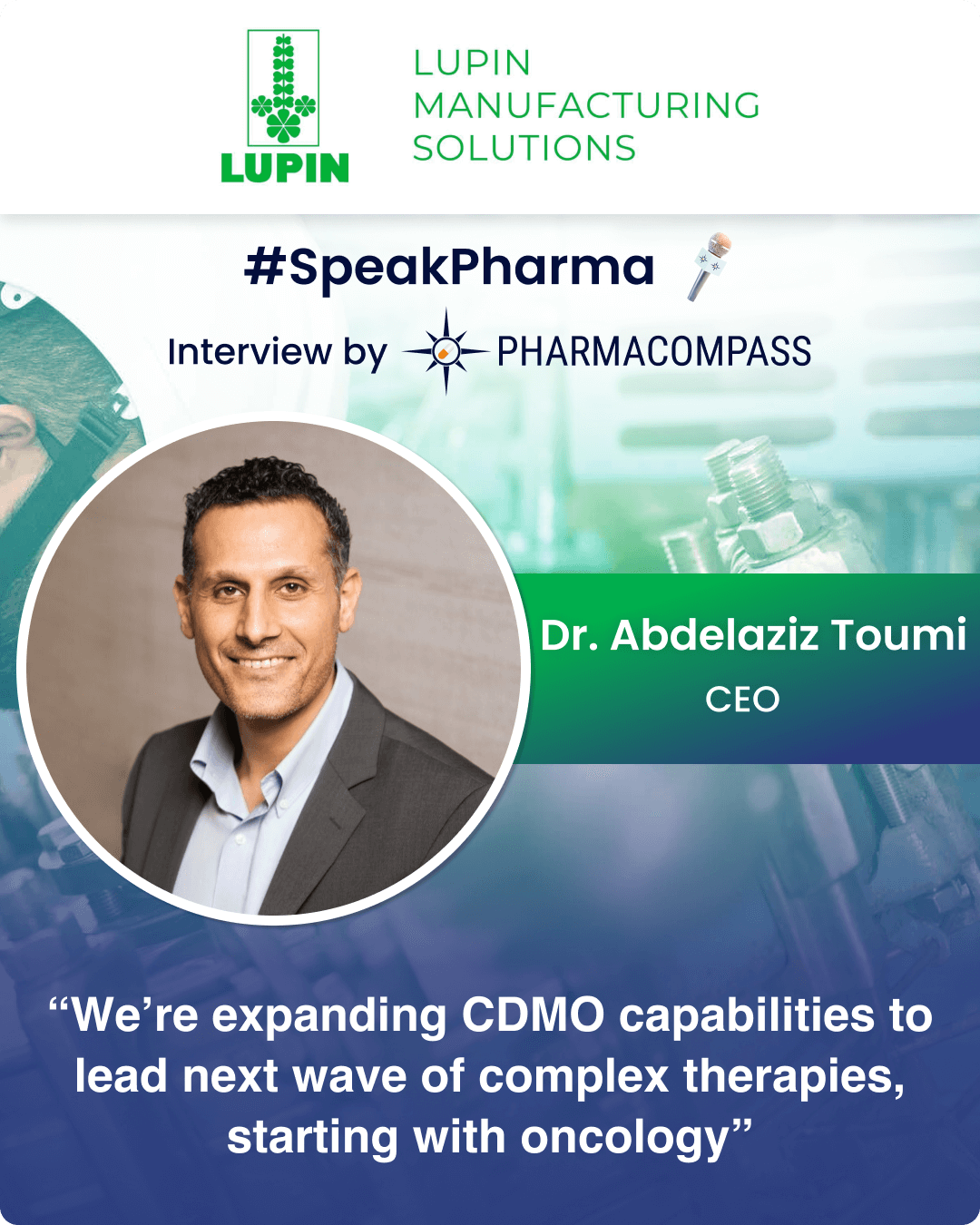
This week, Speak Pharma interviews Mark S. Paxton, the Chief Executive Officer of Rx-360, a non-profit, international pharmaceutical supply chain consortium. The consortium seeks to protect patient safety by sharing information and developing processes related to the integrity of the supply chain and the quality of materials moving in international commerce. Prior to joining Rx-360 as its first CEO, Paxton worked with the US Food and Drug Administration (FDA) where he led an international strategic program focused on medical product quality and supply chain security under the multi-lateral forum Asia-Pacific Economic Cooperation (APEC).
- Can you tell us about Rx-360 and the services you offer to your members?
The Rx-360 consortium began to take shape in late 2008, following the contaminated heparin crisis. That crisis had affected thousands of patients in the US alone. I’m not sure how familiar your readership is with what had happened, but essentially, after pig intestines were aggregated for processing, an upstream supplier substituted raw heparin with over-sulfated chondroitin which, analytically, looked exactly like heparin using the USP method.
While it is not affirmatively known that the substitution was intentional for drug use, the circumstances around the adulteration certainly look that way. For instance, batches of the raw heparin were cut to between 2 to 60 percent of the contaminant and it was known that pig intestines were in short supply for months before the processing occurred.
Since the FDA does not have the resources or the primary responsibility to conduct inspections of upstream suppliers for pharmaceutical companies, this example illustrates the continuing need for diligence in applying GMP across the industry. With globalization, vendor qualification with an appropriate audit program has become an absolutely necessary component of GMP.
Realizing this, Rx-360 was formally created in 2009 and the initial focus was on developing a cost-sharing audit program that needed to meet two primary objectives – increase the quality audit footprint of upstream suppliers while reducing the average costs of audits as well as the unsustainable burden on suppliers for the resulting increase of audit requests at their facilities.
I am happy to say that after a number of iterations, Rx-360’s current joint audit program efficiently meets both these objectives.
Our joint audit program was the initial reason why many of our members came onboard. However, with time, we have progressed into many other activities that are intended to address the downstream security issues that arise quite often.
We have launched nearly 20 different work groups to address counterfeiting, cargo theft, good distribution practices, product and component security, and a host of other activities designed to ensure patients across the globe receive the medicines they deserve without the consequences that occur far too often without proper regulatory oversight.
- What does supply chain security entail? And why is it becoming increasingly important to the industry?
A great question. Historically, business schools and industries have differentiated ‘upstream’ from ‘downstream’ with the manufacturer of a consumer product being the linchpin or the reference point. Upstream always referred to suppliers to that manufacturer, and downstream always referred to the distribution channels. That’s how I learned it in college.
However, in the pharmaceutical and medical device industries, there are a lot of actives that are used as both inputs into a finished consumer or patient product, but they themselves are also a finished product for patients. Heparin is a great example. Many medical devices use heparin as a component; so do pharmaceutical products. But heparin itself has its own therapeutic use.
When Rx-360 talks about ‘supply chain’, we are speaking holistically – from starting materials all the way to patients. ‘Security’, at least for us, means to ensure that the component of a pharmaceutical or a device, as well as the finished products using those components, are in fact what they purport to be.
- Data-integrity has been a hot topic lately? What are your views on the impact of data-integrity observations at companies around the world?
I don’t believe anyone who thinks it is okay to delete records has any place in our industry. Saying that there is no relationship between quality and data integrity means to me that you have no idea about the public health mission of regulatory agencies, or how the vast majority of companies who strive to be GMP-compliant on a daily basis operate, and why those companies make these tremendous efforts.
If deleting electronic records is okay, then it must be okay to rip out pages from lab notebooks. In either case, such actions inhibit the ability of a private sector auditor or an investigator from a regulatory authority – all of whom are genuinely concerned about quality – from doing their jobs.
Deleting original records is non-GMP. And, under the laws of most nations, being non-GMP means the resulting product shall be “deemed” to be adulterated. The mantra “write what you do and do what your write” still holds true with electronic documentation, just as it did when all records were previously written by hand.
- Let’s talk about Rx-360’s joint audit program. What is it all about and how do companies benefit from these audits?
Again, this is a flagship pioneering effort for Rx-360. First, we need to emphasize that our program is in fact a ‘joint’ audit program, not a third party audit program. Our members can join audits of a common supplier site while being precluded from knowing who their co-sponsors are. This way, the cost can be split among two or more companies without any of them knowing who the others are. Blinding them from each other is done automatically in our AuditsPlus database and we do this to ensure we are consistent with the anti-trust rules.
Thereafter, we out-license audit reports to either members or non-members. If there is sufficient demand for the audit report, the original sponsor or co-sponsors of the audit will receive up to a 100 percent credit of the costs they incurred to be applied to future audits they schedule through Rx-360.
- The other key activities of Rx-360 include adopting standards and best practices, market surveillance and supplier audit. What are some of the activities you have been undertaking recently in these areas?
We have launched approximately 20 work groups that have published white papers and best practices covering many activities related to quality of components and products moving in international commerce and supply chain security.
Rx-360 supports all of these activities. But I am really excited about three of the most recently launched work groups. One is the development of a Data Integrity Audit Standard. Another is related to the development and adoption of GMP elements to suppliers who may or may not historically be required to register as ‘pharma’ or as ‘med tech’ firms. In this work group, we are trying to add “color” to what it means to say that “GMPs are applicable to the extent practicable” for upstream suppliers.
Finally, we have our ‘Access to Medicines’ initiative. Here, we are addressing the unfortunate need to qualify NGOs and other recipients of donated drugs and medical devices to ensure that these donations actually get to the patients they are intended to help, and not having them diverted to the shelves of a pharmacy in some other country, which unfortunately, occurs too often.
- You’ve worked in other industry bodies before. Why did you join Rx-360 and what are your goals, going forward?
You’re right. I came to Washington to build and lead PhRMA’s (Pharmaceutical Research and Manufacturer’s Association) international regulatory affairs program. There, I was focused entirely on working with regulatory authorities across the globe. While ICH regulatory authorities were included, most of my work was with non-ICH regulatory authorities, many of which lacked sufficient resources to enable them to effectively protect their patient populations. Consequently, we did a lot of outreach to help build regulatory capacity and understand international practices.
In late 2009-early 2010, there were some changes being implemented at PhRMA where sound regulatory policies were being subordinated to other concerns. Therefore, I explored moving onto the FDA. When I joined the FDA, I was so impressed with the quality of people there. Everyone shared the same concern as me – helping patients. Though relatively short, it was great working there. I made some very meaningful contributions – for instance, I helped build regulatory capacity in international settings, such as the APEC.
Both PhRMA and FDA provided me great opportunities to be at the forefront of a variety of international regulatory issues – be it related to quality, drug development and registration, or supply chains. In the process, I was able to develop significant relationships with like-minded people and organizations. Some of those included working with members of Rx-360, who, like me, were dedicated entirely to working towards ensuring patient safety.
When Rx-360 decided to hire its first CEO, it presented an opportunity to work alongside suppliers, and on a global scale. It also offered the opportunity to work with both branded and generic pharma and medical device companies that were focused solely on the security of global healthcare supply chains and the quality of the components and products moving in those supply chains.
With this narrow focus, but broad membership, it gave me the opportunity to launch meaningful initia-tives in a far more nimble and successful way.
The PharmaCompass Newsletter – Sign Up, Stay Ahead
Feedback, help us to improve. Click here
“ The article is based on the information available in public and which the author believes to be true. The author is not disseminating any information, which the author believes or knows, is confidential or in conflict with the privacy of any person. The views expressed or information supplied through this article is mere opinion and observation of the author. The author does not intend to defame, insult or, cause loss or damage to anyone, in any manner, through this article.”






